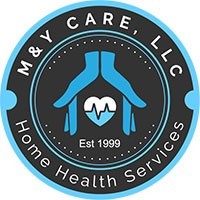Q: Can a home health aide make it possible for an elderly person stay in his or her home despite having health challenges?
A: Many adult children are turning to home health care agencies when elderly parents need skilled nursing, help with daily activities or just companionship.
The aging-at-home trend is moving toward taking care of people in their homes, instead of moving them to facilities, which can sometimes cost more, said Lisa Zidek, president of Visiting Nurse Association of Ohio, a nonprofit that provides home health aides and skilled nurses for home care.
“Home care in general is considered a less-expensive care model in the continuum,” Zidek said.
About 12,000 home care agencies provided care to 3.4 million Medicare beneficiaries in 2017, the most recent year for which data is available, according to a Washington Post article. The number of home health aides is projected to grow 36% between 2018 to 2028, much faster than the average for all occupations, according to the Bureau of Labor Statistics.
Skilled nurses and personal care aides provide different kinds of assistance.
Home health skilled nursing services are typically paid for through insurance and are ordered by a physician, according to Visiting Nurse Association of Ohio. Nurses perform tasks such as managing medication and wound care, physical therapy and other skilled nursing needs for a limited amount of time. This type of assistance is typically ordered by a physician who writes an order for home health when a patient is returning home after a stay in a hospital or skilled care facility.
There are other options for home care, including private duty care, where the client usually pays out-of-pocket costs. A private duty home health aide, also called a personal care aide, provides non-medical care such help with bathing, eating, dressing, running errands or light household chores, according to Visiting Nurse Association of Ohio. The family decides how long the aide stays each day, and the relationship can go on for years. Private duty nursing is also available for chronic conditions or conditions that may not be covered by a physician order.
Caregivers can provide peace of mind, but sometimes the relationship between caregiver and patient goes wrong. In 2019, a home health aide was sentenced in Cuyahoga County Common Pleas Court to serve two years in prison for charges connected to taking without permission more than $200,000 from people she cared for.
There are ways to minimize the risk that comes when you hire a caregiver. The information below came from AARP, Consumer Reports, the Senior List, Visiting Nurse Association of Ohio and Visiting Angels Senior Home Care in Cleveland.
Agencies connect families with aides
Home health or home care agencies employ skilled nurses, therapists or personal care aides, and match them with clients for a fee.
Currently the state of Ohio does not have any licensure requirements for non-medical or custodial homecare agencies, said Constance Hill-Johnson, owner and managing director of Visiting Angels Senior Homecare in Cleveland, an agency that employs personal care aides. Therefore, any agency can establish their own requirements for the type of experience or certification they require of their workers.
Visiting Angels aides have either a state-issued STNA (state tested nursing assistant) credential or license, a home health aide certificate or many years of experience working in the field, Hill-Johnson said. The majority are STNA’s who completed a training program approved by the Ohio Department of Health. Experience working with seniors with many different care needs and medical conditions is critical, Hill-Johnson said.
When searching for an agency, ask these questions:
- Does the agency do background check on its aides?
- Does the agency have insurance for aides, in case an aide is injured in the home?
- Can aides run errands in their own car or a client’s car?
- How is it handled if an aide cancels at the last minute?
- What kind of training or certification do aides have?
Independent caregivers
Personal care aides can be found through word of mouth, or recommendations from a doctor or support group. Families may employ a family friend or relative to help a loved one with daily tasks or appointments.
Mary Keating of Highland Heights used a referral in 2015 to find someone to care for her late mother. Keating hired a team of three women who cooked meals, did laundry and organized medications.
“It was wonderful to know we had the best people possible and (my mother) was well cared for,” Keating said. “I believe it is better, if you can, to find people through your own network.”
Here are tips for hiring an independent aide:
- Do your own background check on potential aides before hiring.
- Have a formal arrangement. Put in writing the number of hours to be worked tasks, pay and other details to avoid disputes in the future.
- Don’t pay under the table. Untaxed cash payments with no records can get you in trouble with the IRS.
- Increase your insurance in case a caregiver is injured in your home.
What does it cost?
The median cost of a home health aide in Northeast Ohio is about $52,620 annually, according to the 2019 Cost of Care survey from Genworth, a long-term care insurance company. The website did not state whether the survey covered aides who work for agencies or are independent.
Visiting Angels charges between $23 and $27 an hour, Hill-Johnson said.
Independent caregivers charge between $12 and $50 an hour in Northeast Ohio, according to Care.com, a website that matches various types of caregivers with clients.
What does Medicare cover?
“Do not assume Medicare covers your at-home care for everything. What they cover is narrow,” said Ann Kayrish, senior program manager for Medicare at the National Council on Aging based in Arlington, Virginia.
Original Medicare will pay for an aide if skilled care (skilled nursing or therapy services) is required, Kayrish said. Under Medicare rules, the patient must be under a doctor’s care and have difficulty leaving home. The nurse or therapist can be in the home for a maximum of eight hours a day.
Medicare will not pay for an aide if you only require personal care such as bathing, dressing or cooking and do not need skilled care.
Home health care agencies must be Medicare-approved to accept Medicare payments, Kayrish said. Get a list of Medicare-approved agencies from your hospital or doctor.
Medicare Advantage beneficiaries need to be sure their home health care agency is inside their plan’s network.
“It’s an additional hurdle,” Kayrish said. “This is where a lot of people mess up.”
New rules limit care
A change in original Medicare rules, effective Jan. 1, is making it more difficult for some Medicare recipients to access home health care.
Under the new rules, known as the Patient-Driven Groupings Model (PDGM), agencies are paid more for adults needing complex nursing care and less for patients who need therapy for chronic conditions, Kaiser Health News reported. Patients across the country are being told they no longer qualify for certain services, or that services have to be cut back or discontinued.
Home health agencies are adjusting to operating under the new rules, said Zidek of Visiting Nurse Association of Ohio. “Our priority as always is to provide consistent, patient-centered home health, including therapy services,” Zidek said.
Written by Julie Washington, The Plain Dealer
Source: cleveland.com

